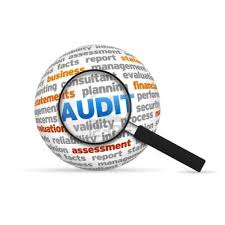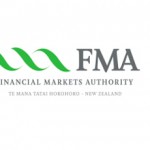Regulators suggest firms take deep dive into audit quality

While acknowledging that auditors are under unprecedented scrutiny, an international association of audit regulators is asking audit firms to analyze causes of problems in audits globally in hopes of finding remedies.
Lewis Ferguson, chair of the International Forum of Independent Audit Regulators (IFIAR), said he believes audit quality has improved in recent years as auditors have been scrutinized more heavily than other professionals.
“At least in the United States, we do not look at lawyers or doctors or engineers with the level of scrutiny by experts [that auditors receive],” Ferguson, a member of the PCAOB, said during a news conference. “And the people who are doing this looking, the regulators, are themselves great experts in this area. So this profession is being subjected to a level of scrutiny that’s really kind of unprecedented.”
An IFIAR survey report released Thursday showed results of that scrutiny. The report identified certain areas where deficiencies were most common in inspections conducted by regulators globally:
- For audits of listed public-interest entities, inspection themes with the highest numbers of audit findings were fair value measurement, internal control testing, and adequacy of financial statements and disclosures.
- For audits of systemically important financial institutions, inspection themes with the highest number of findings were audit allowance for loan losses and loan impairments, internal control testing, and audit of the valuation of investments and securities.
- For inspections of audit firms’ own quality-control systems, the highest numbers of findings were related to engagement performance, human resources, and independence and ethics requirements.
The topics that resulted in the highest number of findings were nearly identical to those found in a 2012 survey conducted by the IFIAR. Different data collection methods and time frames across jurisdictions made it impossible to make a quantitative conclusion on whether overall audit quality has improved or declined, Ferguson said.
“I think those of us in this business do have a sense that audit quality is improving,” Ferguson said.
In a statement responding to the survey report, the Center for Audit Quality (CAQ) said that legislative reforms and efforts from regulators, the accounting profession, and others have led to improvements in audit quality, financial reporting, and internal controls over financial reporting. But the CAQ, which is affiliated with the AICPA, said there is always work to do.
“The profession is proud of the quality audits it performs, and the continuous cycle of improvement is a critical component of the profession’s focus on enhancing audit quality,” the CAQ said. “We are working hard to respond to the demands of a complex, global economy through the development of new resources and additional training and efforts to improve communications with audit committees.”
The IFIAR also is seeking further improvement and is asking audit firms to seek more detailed information in pursuit of higher quality. IFIAR Vice Chair Janine van Diggelen, the head of the Audit and Reporting Quality Division at the Netherlands Authority for the Financial Markets, said firms have audit quality high on their agenda and provided more training for auditors and invested heavily in improving their internal quality-control systems.
“So they’re also now getting to the point where they have to look deeper,” she said.
She said structural, behavioral, and cultural issues may have effects on audits that need to be explored. Ferguson gave examples of those issues, saying audit quality might be affected by partner workload, ratio of partner work to staff work, and use of experts. He said compensation structures also could be examined.
“What gets rewarded in an accounting firm?” Ferguson asked. “Is it business getting? Is it audit quality? How do you measure audit quality? These are the questions that, as individual regulators—and together—we are beginning to ask at a very granular level.”
Van Diggelen called for global leaders of firms to encourage in-depth root-cause analysis by the national network firms on these issues. Ferguson said the survey results should be viewed with the understanding that auditors are highly scrutinized.
“You have to put this in context,” Ferguson said. “Part of this comes from the fact that this profession is being subjected to a level of scrutiny now—detailed scrutiny—that is both new and probably unique in the way any profession is looked at.”
(By KEN TYSIAC)
Source: journalofaccountancy





























